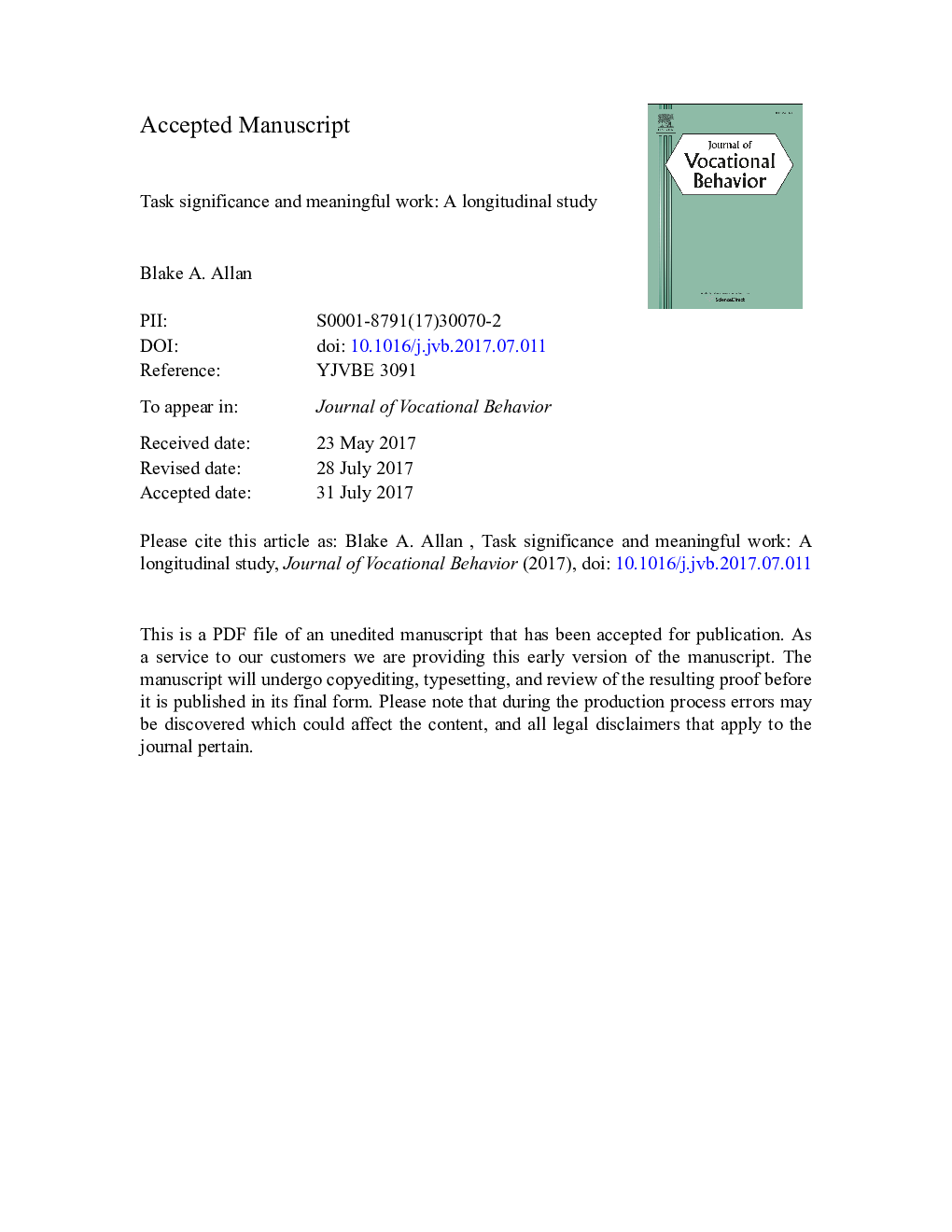| Article ID | Journal | Published Year | Pages | File Type |
|---|---|---|---|---|
| 5035108 | Journal of Vocational Behavior | 2017 | 33 Pages |
Abstract
The goals of the current study were to evaluate task significance as a longitudinal predictor of meaningful work and to test moderators of this relation. A large sample of working adults completed surveys at three time points over a sixth month period. Supporting hypotheses, task significance significantly predicted meaningful work over time, but meaningful work did not predict task significance over time. Age, gender, and social class did not moderate the relation between task significance and meaningful work. This result adds to a growing body of research suggesting that perceiving one's work as improving the welfare of others leads to experiencing one's work as meaningful. This result has implications for the individual well-being of workers and for the productivity of organizations.
Keywords
Related Topics
Social Sciences and Humanities
Business, Management and Accounting
Marketing
Authors
Blake A. Allan,
